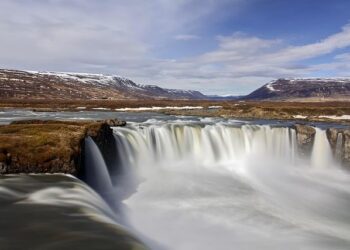Iceland has recently entered the spotlight alongside Switzerland and Austria in the ongoing greenwashing debate, as its latest eco-tourism initiatives come under increasing scrutiny. While these countries have promoted ambitious sustainability campaigns aimed at attracting environmentally conscious travelers, critics question whether such efforts genuinely contribute to planetary health or primarily serve as marketing tools. This development raises important questions about the effectiveness and transparency of green tourism practices in some of the world’s most popular destinations.
Iceland’s Eco-Tourism Push Under Scrutiny Amid Greenwashing Accusations
Iceland’s ambitious plans to transform its tourism industry into a model of sustainability have recently come under intense scrutiny. Critics argue that while the country promotes its pristine landscapes and geothermal energy as pillars of eco-tourism, the rapid growth in visitor numbers continues to strain fragile ecosystems. Environmental advocates point to a concerning gap between Iceland’s marketing campaigns and the tangible environmental benefits, urging for greater transparency and realistic assessments of the initiatives’ ecological impact.
Key concerns raised include:
- Overtourism escalating beyond the carrying capacity of natural sites
- Insufficient infrastructure to mitigate increased waste and emissions
- Lack of independent verification regarding the eco-friendly claims
Comparisons with Switzerland and Austria reveal a common challenge among European alpine and Nordic destinations, where aggressive green branding often overshadows the nuanced realities on the ground. The table below highlights a few commitments versus outcomes in these countries’ eco-tourism endeavors:
| Country | Eco-Tourism Commitment | Reported Outcome | Criticisms |
|---|---|---|---|
| Iceland | 100% renewable energy for tourism sector | Rising carbon emissions from flights and tours | Greenwashing over unchecked visitor growth |
| Switzerland | Carbon neutrality by 2030 in alpine resorts | Delay in infrastructure upgrades | Lack of verified emission reductions |
| Austria | Support for eco-friendly local businesses | Modest economic gains, limited environmental impact | Marketing exceeds actual sustainability benefits |
Comparing Initiatives in Switzerland Austria and Iceland How Effective Are Their Environmental Claims
Switzerland, Austria, and Iceland have each rolled out ambitious environmental initiatives aimed at repositioning their travel sectors as paragons of sustainability. However, the real effectiveness of these programs remains under scrutiny. In Switzerland, stringent regulations have been implemented to reduce carbon emissions in popular mountain resorts, coupled with incentives for electric public transport. Austria, meanwhile, emphasizes the promotion of biodiverse landscapes through rewilding projects and strict limits on tourism traffic in sensitive areas. Iceland, the newest contender, promotes itself heavily as an eco-tourism haven, yet critics question whether the rapid increase in visitor numbers and infrastructure development might be undermining these green claims.
When dissecting their approaches, certain factors stand out:
- Transparency: Switzerland publishes annual sustainability reports verified by third parties, providing a clearer picture of progress.
- Community Engagement: Austria integrates local populations into decision-making, which enhances long-term ecological stewardship.
- Tourism Growth vs. Capacity: Iceland faces challenges balancing its booming tourism industry with ecological preservation efforts.
The table below offers a snapshot comparison of key metrics regarding environmental claims and actual impact in the three countries:
| Country | Carbon Emission Reduction Target | Annual Tourists (Millions) | Sustainability Transparency Index | |||||||||||||
|---|---|---|---|---|---|---|---|---|---|---|---|---|---|---|---|---|
| Switzerland | 40% by 2030 | 20 | High | |||||||||||||
| Country | Carbon Emission Reduction Target | Annual Tourists (Millions) | Sustainability Transparency Index | |||||||||||||
| Switzerland | 40% by 2030 | 20 | High | |||||||||||||
| Austria | 35% by 2030 | 30 | Medium | |||||||||||||
| Experts Call for Greater Transparency and Sustainable Practices in Popular Travel Destinations Industry experts are urging travel hotspots like Iceland, Switzerland, and Austria to adopt clearer and more genuine sustainability measures instead of relying on marketing tactics that may mask environmental concerns. Recent initiatives touted as “eco-friendly” have faced criticism for lacking rigorous verification and long-term impact assessments, raising questions about whether these popular destinations truly prioritize the planet or simply capitalize on green trends to attract conscious tourists. Advocates emphasize that transparency in reporting carbon footprints, waste management, and local ecosystem preservation must be standardized across the globe to ensure tourists can make informed choices. To further illustrate the need for accountability, experts highlight key areas where popular travel destinations should focus their efforts:
Transparency Rating: based on publicly available data and third-party audits. Key TakeawaysAs Iceland joins Switzerland and Austria in the ongoing greenwashing debate, the scrutiny surrounding their eco-tourism initiatives intensifies. While these nations promote themselves as sustainable travel destinations, critics urge a closer examination of the true environmental impact behind the glossy marketing. Moving forward, transparency and measurable commitments will be essential for these countries to prove that their efforts are more than just greenwash-and truly contribute to protecting the planet for future generations. ADVERTISEMENT |
















